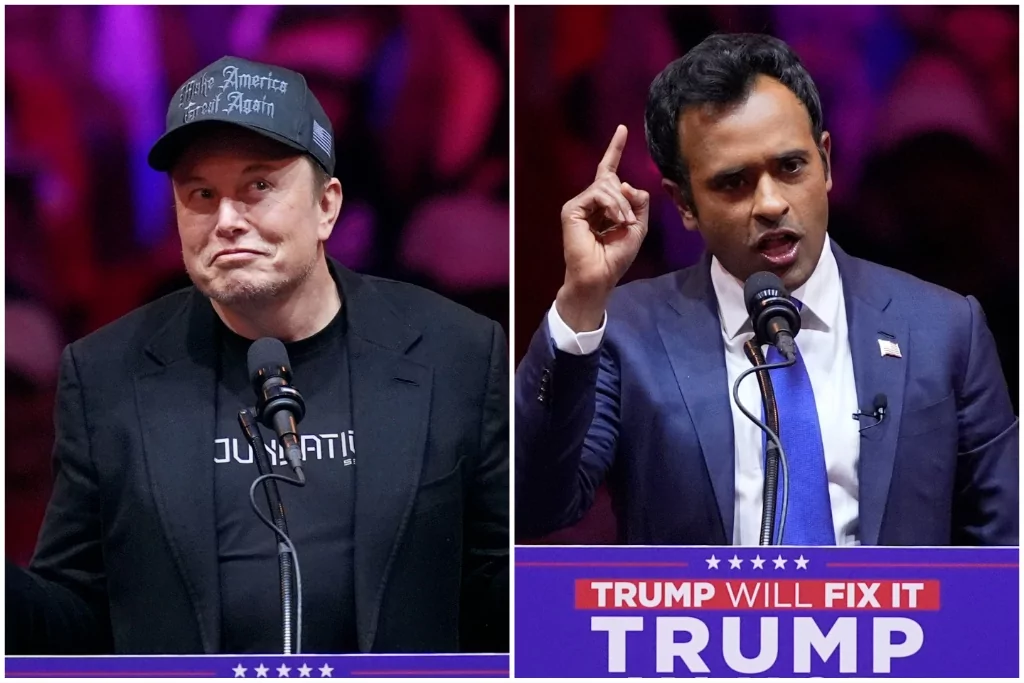

Elon Musk and Vivek Ramaswamy, who will head the proposed Department of Government Efficiency, signaled a desire to end the semiannual daylight saving time clock change. There is just one problem: That power belongs to Congress.
Musk shared an X poll showing the vast majority of respondents want to abolish the “annoying” time change, to which Ramaswamy responded that the policy is “inefficient and easy to change.”
Many political figures and influencers commented on the post in support of making daylight saving time permanent, including Donald Trump Jr. However, in 1966, Congress passed the Uniform Time Act, which established daylight saving time, and put the Department of Transportation in charge of enforcing it.
The department even has a specific email address for people to contact if they want to report their locality for not observing daylight saving time. States can exempt themselves from observing it through state laws, but states don’t have the authority to choose to be on permanent daylight saving time.
Only two states, Arizona and Hawaii, exempt themselves from observing daylight saving time.
There have been several congressional efforts made to change federal law and make daylight saving time the standard time all 50 states observe, most notably the Sunshine Protection Act.
The bill, first proposed by Sen. Marco Rubio (R-FL) in 2021, has supporters on both sides of the aisle. Democratic co-sponsor of the bill, Sen. Edward J. Markey (D-MA) has said, “Americans want more sunshine in the chilly, winter months, and Congress can deliver that to them.”
Proponents of the bill argue that it gets dark too early in the winter, contributing to seasonal depression and lack of visibility during rush hour traffic that can be dangerous for those commuting home from work.
Opponents of the bill argue that students commuting to school early in the morning would have less visibility, which could be dangerous, and that such a change could impact people’s circadian rhythms.
The Sunshine Protection Act was passed in the Senate with unanimous consent but has not been voted on by the House of Representatives. Speaker of the House Rep. Mike Johnson (R-LA) has the power to bring it to a vote.
CLICK HERE TO READ MORE FROM THE WASHINGTON EXAMINER
It is unclear if Musk and Ramaswamy’s plan to end the semiannual clock change entails an extra-congressional effort through DOGE or if they simply plan to lobby Johnson to bring the bill to the House floor.
DOGE is getting its own House Oversight subcommittee, headed by Rep. Marjorie Taylor Greene (R-GA), and there will also be a DOGE House caucus launched by Reps. Pete Sessions (R-TX) and Aaron Bean (R-FL), where Representatives will vote in line with the advisory panel’s initiatives. Rep. Jared Moskowitz announced he will be the first Democrat to join the caucus on Tuesday.